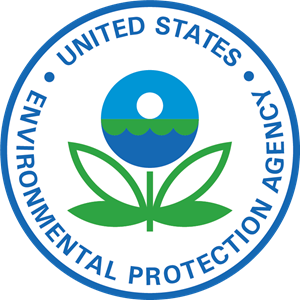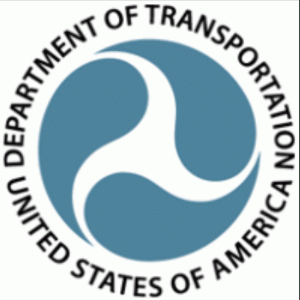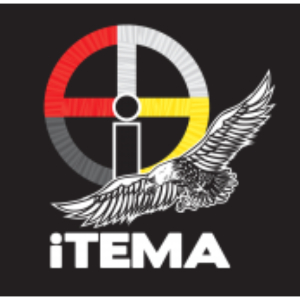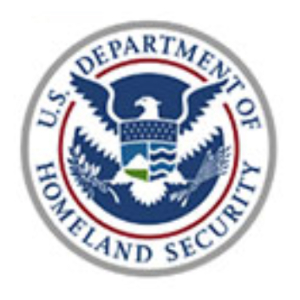Building Tribal Capacity
There are many free trainings and webinars available to Tribes in addition to the resources found throughout the Tribal Lands and Assistance Center website. We strive to keep this information up to date. Therefore, if you can’t find something you are looking for, or if you have beneficial information to add to our resources, please let us know!
EPA Tribal Lands Webinar Recordings: Watch recordings and access slides for past EPA webinars focusing on Tribal Lands. Topics include: Community Outreach and Education, Planning Tools, Sustainable Materials Management, Environmental Justice, Disaster Preparedness, COVID-19 Resources, and Tribal Coordination/Rulemakings.
EPA’s Tools and Resources Webinar Series: EPA’s Office of Research and Development (ORD) hosts this monthly public webinar series to translate EPA research and share research resources and information that are useful, practical/applied and available to meet research needs of states/territories and other entities, such as tribes, local governments, and communities. In addition, the series provides in-depth overviews and step-by-step tutorials on popular EPA science-based models and tools.
*Clean Up Information Network (CLU-IN): Technical online webinars and on demand courses related to innovative treatment and site characterization technologies, while acting as a forum for all waste remediation stakeholders. Explore CLU-IN website for upcoming training and archived webinars. Subscribe to CLU-IN’s newsletter to receive notifications of upcoming events. CLU-IN Website.
*Training Exchange (Trainex): Classroom training for federal state, and Tribal representatives involved with regulatory and enforcement activities involving solid and hazardous waste cleanup and emergency response. Currently offering some courses online. Trainex Website
*EPA’s Environmental Response Team Virtual University (ERTPVU): On demand courses that are taken at a self-directed pace. Example courses include: Superfund 101, Superfund Essentials, Superfund Enforcement, Understanding a Contractor’s Analytical Data Report, and Superfund Hazard Ranking System Training Course. ERTPVU Website
*For an overview of the above three resources, watch The Training on Training – Superfund Technical Training Resources at Your Fingertips which walks viewers through how to navigate these Superfund-related online training resources.
Interstate Technology & Regulatory Council (ITRC): Training is based on ITRC technical and regulatory guidance documents. ITRC Internet-based training classes are hosted in conjunction with U.S. EPA’s Technology Innovation and Field Services Division and are posted on CLU-IN’s webpage. ITRC develops and delivers training courses via the Internet to reach a geographically dispersed audience of regulators, consultants, and other members of the environmental community. ITRC Website
Alabama Fire College (AFC) Native American Training: AFC conducts Hazmat-related training for Native Americans free of charge. AFC asks for a minimum of 20 students per class, and a suitable place to conduct the training. They will provide the instructor, and the instruction materials for the students. Please consider scheduling two or more classes at the same time to maximize the use of AFC’s travel funds. The classes are scheduled on a first come, first served basis. See AFC’s Free Workplace Safety Training for Native American Tribes and AFC’s HAZMAT and Uranium Courses flyers for the free course listings. Contact Roy Stover if you have a specific request (other courses may be available), want to schedule existing courses, or need additional information. AFC Website
Training Resources for Tribal Waste Management: EPA compiled a library of Tribal waste management training materials, created by federal and non-federal partners including the Federal Emergency Management Agency, the Indian Health Service, the U.S. Department of Agriculture, and Tribal organizations. These free materials include resources from trainings as well as education and outreach materials that are not part of any formal training. They are organized into six categories and can be filtered and sorted in three ways.
Additional Training Opportunities
ITEP Webinars and Videos
See Tribal Superfund Working Group (TSFWG) meeting notes, presentations, and recordings by date delivered at TLAC’s TSFWG webpage.
- Addressing Radiation at Superfund Sites
- Climate Resiliency and Superfund Sites
- Coeur d’Alene Basin Natural Resource Restoration from a Tribal Perspective
- EJ Conversation with Carlton Waterhouse
- Federal Facility Sites and the FEDFacts Tool
- Finding and Managing Consultants – A TSFWG Virtual Panel
- Superfund Remediation at Tar Creek
- The Coeur d’Alene Tribe’s ‘Call to Action’ on why EPA deferred a remedy for Coeur d’Alene Lake
- Training on Training – Superfund Technical Training at Your Fingertips
- Tribal Perspective on Use of Drones in Superfund and Emergency Response Programs
- Use of Drones in EPA’s Superfund and Emergency Response Programs
- US EPA’s Office of Research and Development Technical Support and Regional Collaboration
2021 Tribal Superfund Working Group Annual Meeting: Saint Regis Mohawk Tribe
- Includes ten sessions recorded over a six-day meeting in April 2021. Session examples include multiple Tribal case studies, Cooperative Agreements – Lessons Learned, Archeological Significance on Superfund Sites, Air/Water Tribal Standards – Monitoring and Application at Superfund Sites, Risk Communication, Building Relationships, and more.
- Assessing and Preventing Exposures to Endocrine Disrupting Chemical in Alaska Native Communities on St. Lawrence Island
- Assessing Contaminant-Related Health Risks for Tribal Communities: Developing Exposure Scenarios, Exposure Pathways, and Exposure Factors for Tribal Risk Assessments
- Health Effects from Exposure to Polychlorinated Biphenyls (PCBs) Among Akwesanse Mohawks
- Native Food Pathways and Contaminated Sites
- Protecting the Sacred in an Environmental Cleanup – the Fort Mojave Indian Tribe and the Topock Remediation Project
- Protecting Tribal Environmental Health: Challenges and Opportunities for Risk Assessment
- Radionuclide Contaminant Transport at the Pueblo de San Ildefonso
- Stresses and Successes: A Difficult Responsibility for Tribes Restoring Contaminated Lands and Water
- Toxics Release Inventory Data and Other EPA Information to Support Tribes
- Tribes and Pesticides – an Open Discussion with the Tribal Pesticide Program Council (TPPC)
- DOI Restoration Planning, Implementation, and Monitoring
- Introduction to Natural Resource Damage Assessment and Restoration (NRDAR)
- Phytoremediation Using Bacterial Endophyte Enhanced Poplar Trees
- Superfund Remediation at Tar Creek
- Environmental Health and Land Reuse Certificate Program (multi-day training)
Increasing Community Engagement on Contaminated Lands
- Concepts and Practices of the University of New Mexico’s METALS Superfund Research Program
- A Case Study of Chromium Uranium Exposure in Sanders, Arizona
Superfund Cooperative Agreements – A Tribal Perspective
- St. Regis Mohawk Tribe Overview for the General Motors and 2 Alcoa Superfund Sites
- Quapaw Tribe Overview for the Tar Creek Superfund Site
Superfund Cooperative Agreements – A Federal Perspective
- US Environmental Protection Agency – Types of Superfund Cooperative Agreements
- US Environmental Protection Agency – Cooperative Agreements with the Quapaw Tribe
PFAS and Other Emerging Toxins
- One Health Assessment of Mercury, Persistent Organic Compounds and PFAS for Consumption of Restored Anadromous Fish in the Penobscot River
- PFAS on Tribal Lands: Part 1 and Part 2
- PFAS Strategic Roadmap
- PFAS Workgroup Q&A Sessions
ITEP Training
ITEP’s online courses are free and self-paced. Request enrollment into the following here:
-
Brownfields: Land Restoration Using Traditional Food, Plants, and Culture
-
Brownfields Tribal Response Program Fundamentals
- HAZWOPER 8-Hour Refresher
- Introduction to Brownfields
- Introduction to Hazardous Waste
- PPE for Tribal Environmental Professionals
- Quality Assurance Fundamentals
- Writing Quality Assurance Project Plans
Trainings of Interest
Tribal Nations Training Week for Emergency Responders – Center for Domestic Preparedness (contact David.Hall@fema.dhs.gov for current course schedule)
Stormwater – Certified Inspector of Sediment and Erosion Control (CISEC)
Stormwater – International Erosion Control Association
Climate Change – Association of Climate Change Professionals (ACCO)
Floodplain Management – Association of State Floodplain Managers
Conferences / Organizations of Interest
American Society of Mining and Reclamation
Inter-Tribal Emergency Management Coalition
Inter-Tribal Environmental Council (ITEC)
International Erosion Control Association
Interstate Technology & Regulatory Council (ITRC)
The Mesothelioma Center – Environmental Effects of Asbestos
Native American Fish and Wildlife Society
National Association of EPA Remedial Program Managers (NARPM) Semi-Annual Conference





